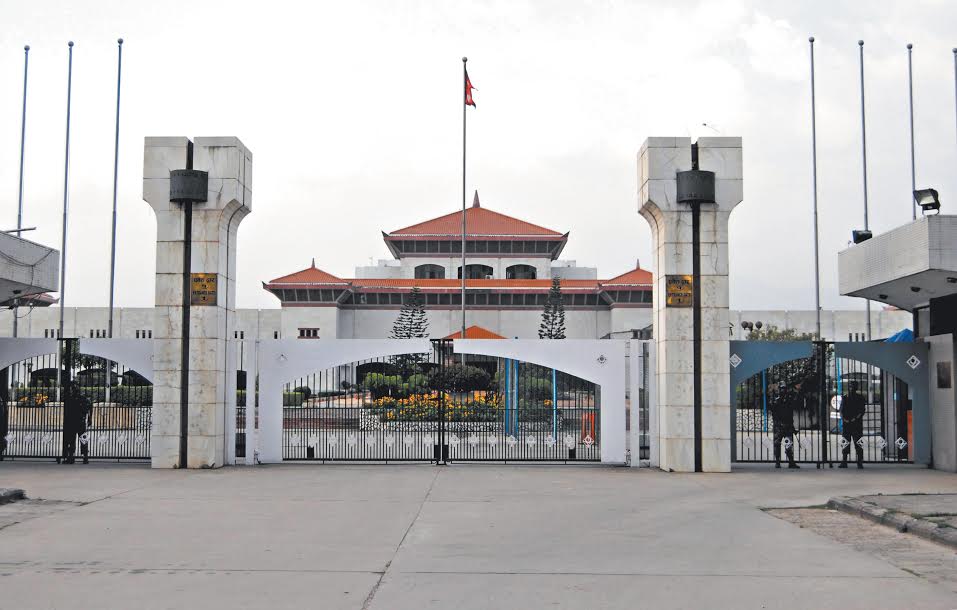Three panels probing irregularities in forest management
Kathmandu, July 23
Two parliamentary committees have started investigating illegal felling of trees at several places in the country on the pretext of scientific management of forest.
The Parliament stepped in the probe after the government initiated an investigation by forming its own probe committee.
The Council of Ministers on May 28 had decided to immediately impose a ban on felling trees and collection, transportation and sale of timber from forests, reasoning that trees were being felled illegally in the name of scientific forest management.
Stakeholder organisations had urged the government to reconsider its decision, citing adverse impact on timber production.
Subsequently, the ban on collection and supply of timber of other tree species except the Saal (Shorea robusta) was lifted on June 10.
The government also formed a five-member high-level probe committee under the coordination of Netra Prasad Timsina. Joint Secretary Dr Sindhu Prasad Dhungana at the Ministry of Forests and Environment is the member-secretary and Akhileshwor Lal Karna, Renu Shah and Kanti Rajbhandari are members of the committee.
Committee convenor Timsina said the committee would begin an on-site study from next week after consulting policy-related and implementation aspects of the programme and forest conservation with the federal government officials concerned.
The committee has been given two months time to study the destruction of forest and submit a report with recommendations for forest conservation and legal action against the guilty in illegal felling of trees in the name of scientific forest management.
Parliamentary committees expressed concern about the issue after news related to illegal lumbering under scientific forest management scheme was reported by the media.
In this connection, the Public Accounts Committee under the House of Representatives constituted a probe sub-committee with lawmaker Pradeep Yadav as its coordinator and Prem Bahadur Ale and Meena Subba as members.
The sub-committee is tasked with carrying out thorough study of the scientific forest management programme and submit of a report within 50 days.
Before this, the committee had held discussions with the secretary at MoFE on various issues related to the scientific forest management programme, its present status, the reasons for rapid felling of trees in forests, its impact and consequences.
The sub-panel conducted monitoring in various districts, including Kanchanpur, Kailali, Banke, Bardiya, Kapilvastu and Nawalparasi. With the extension of its term, it has planned to conduct monitoring in the eastern districts too, according to lawmaker Ale.
According to Ale, it was found during the inspection visit that there was random deforestation in the name of scientific forest management.
Even forest ministers at the provinces, civil servants and forest users’ committee people were involved in such illegal work.
Kailali and Kanchanpur forest division offices hesitated to provide related documents on these activities.
The Agriculture and Natural Resources Committee under the HoR had received complaints regarding random deforestation in Banke, Bardiya, Kailali, Kanchapur and Dang.
In view of the complaints and media reports, a sub-committee was formed under coordination of lawmaker Shanta Chaudhary to conduct field study and submit a report within a month.
Sub-committee coordinator Chaudhary said field visits were made in the western districts and the panel was planning the same in the east. She also shared that irregularities were rife in the scientific management of forest.
The Federation of Community Forestry Users Nepal has however demanded that lawmakers conduct the study by not interfering with the autonomous rights of forest users’ committee provided by the Forest Policy, Act and Regulation.
The government had introduced the scientific forest management programme by preparing a work procedure in 2014 to make the country self-reliant in timber by reducing its import.
A version of this article appears in e-paper on July 24, 2020, of The Himalayan Times.






